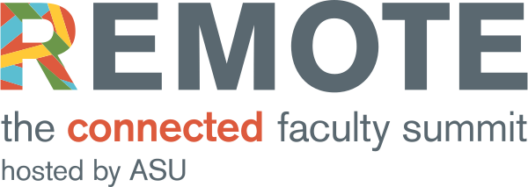This video was part of the July 2021 REMOTE: The Connected Faculty Summit
We will share ways in which a digital humanities project we created during the pandemic, Journal of the Plague Year: A Digital Archive of Covid-19, points the way toward principles and practices of student engagement useful in our changing classrooms.
Catherine O’Donnell
Professor of History | Arizona State University
Catherine O’Donnell is Professor of History at Arizona State University. She is the author of Elizabeth Seton: American Saint (Cornell University Press, 2018), which was awarded the Distinguished Book Award by the Conference on the History of Women Religious, for books published from 2016-2018, as well as the Biography Prize from the Catholic Press Association. She is also the author of Men of Letters in the Early Republic (Chapel HIll, 2008) and articles appearing in venues including the William and Mary Quarterly, the Journal of the Early Republic, Early American Literature, and the US Catholic Historian. She teaches undergraduate and graduate courses on early American history and the Atlantic World.
Mark Tebeau
Associate Professor | Public History, Arizona State University
An urban, public, and digital historian, Mark Tebeau has directed more than two dozen digital humanities, oral history, and public history projects.
In March 2020, Tebeau co-created and co-directs A Journal of the Plague Year: An Archive of Covid-19, an international curatorial consortium that is building a crowdsourced digital archive documenting the pandemic. With attention to silences evident in traditional archives, JOTPY is connecting and linking data drawn from around the United States and the world into an archive that will help present and future researchers understand this tenuous moment.
Tebeau leads the development of Curatescape a framework for mobile publishing that seeks to make open-source and/or low-cost hosted mobile tools available to scholars and curators. With funding from the NEH Office of Digital Humanities, Curatescape is being used by more than 20 cultural organizations, universities, and heritage preservation organizations to curate landscapes and museums. Projects include Salt River Stories, Cleveland Historical (which Tebeau co-directs), Spokane Historical, Baltimore Heritage, New Orleans Historical, Explore Kentucky, and Connecticut Communities.
Prior to joining Arizona State University in 2013, Tebeau directed the Center for Public History + Digital Humanities at Cleveland State University. Tebeau and the center collected more than 1200 oral histories that explore the history of the Northeast Ohio region.
As an urban historian, Tebeau’s first book, “Eating Smoke: Fire in Urban America, 1800-1950” (Johns Hopkins, 2003) examined how urban residents physical and metaphorically constructed American cities in response to the risk of fire. He is now completing a book that explores the history of public gardens, monuments, and public art through the lens of the Cleveland Cultural Gardens.
He can be found on twitter @urbanhumanist.

